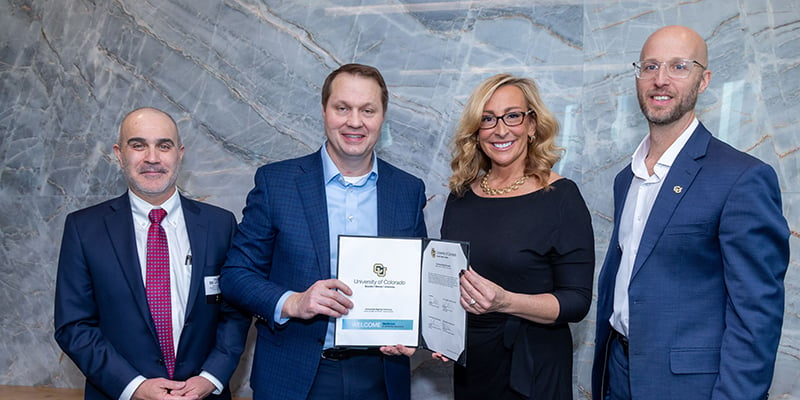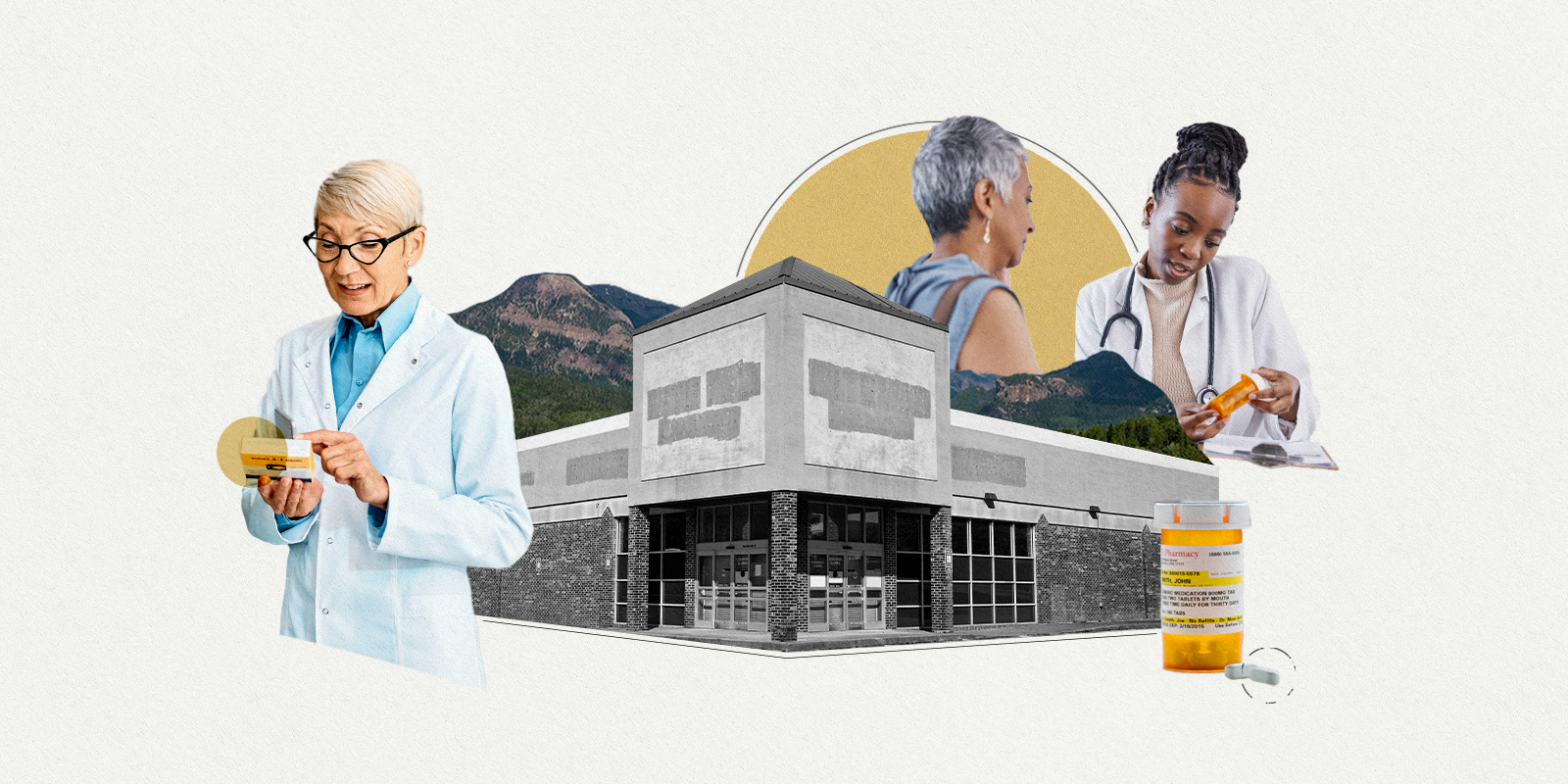Do you ever feel alone in a crowded room? The question is a lyric from a band called Jack’s Mannequin that Emily Hemendinger, MPH, LCSW, said provides her with a great lead-in for discussing chronic loneliness with patients.
“It’s a feeling of never fitting in, of always being on the outside,” said Hemendinger, assistant professor in the Department of Psychiatry at the University of Colorado School of Medicine and clinical director of the OCD Program. “And anyone at any point in their life can feel lonely, if they don’t feel like they have meaningful and deep relationships.”
At a time when the U.S. Surgeon General and other health experts are calling loneliness an epidemic, Hemendinger treats her share of patients whose health and lives are being affected by a lack of connection. In the following Q&A, she details how to identify loneliness and the progressive steps that individuals can take in therapy to help find better connections in their lives.
|
See related story: Unraveling the Connections Between Loneliness and Emotional Eating |

How do you talk to patients about loneliness in a contemporary context, taking technology into account?
Two quick points: I’d say what fills someone’s social cup isn’t necessarily going to be the same for another person, and I think people automatically assume in order to have a connection, it has to be in person.
And yes, some of that is true. However, there are lots of people I see in therapy who have really deep connections with people they've never met in person. Online communities can foster environments where people can feel really bonded and have friendships.
So when I'm talking to patients about loneliness and meaningful relationships, it's important as a provider not automatically to go in with, "You have to be seeing people in person, and it has to be this specific, cookie-cutter solution.”
How do you parse if a particular person is lonely given that it can be so subjective?
As providers when we hear patients saying they feel depressed or don’t feel like they have any friends, we will often work with them on something called an ecomap.
Ecomaps are therapeutic tools where you put yourself in the center and write out around you all the different communities, connections and people in your life. And then you draw lines, and based on the quality of the relationship, it corresponds to the type of line. If it's a reciprocal, stable and secure relationship, you're drawing a solid line with arrows going both ways. If it's a tense relationship, you're drawing a squiggly line.
While doing an ecomap, we also ask people questions such as:
- Do you want any of these relationships to change?
- Do you want to bring people in more or have a more reciprocal relationship with people? What are the steps we take to get you there?
- Do you need to practice more interpersonal effectiveness?
- Do we need to get you out of the house more?
- Do you have an online community for support?
- Do you work? Do you talk to people at work?
- Do you need to be more reliable with answering text messages? What does that look like for you?
- And what are the steps we can take so that you're building more meaningful relationships in your life?
Assessing all of those factors, seeing the connections between them and then asking if the patient is wanting to change that – because some people might not want to – is part of determining if someone is lonely.
How do you go forward from an ecomap in treating loneliness?
I think for a lot of patients it comes down to more direct communication. Say there is a relationship on your ecomap you would like to improve – I’ll work with clients on ways to improve their social skills as a first step. A lot of that entails going through things such as: “You have to answer text messages and make plans. You are allowed to cancel but can’t be doing it all the time and have to provide follow-up plans.”
For people who are feeling very lonely, there's often significant depression. And with depression, there's a lot of difficulty doing most things, so we have to help them with these activities.
Does that include helping find more positive experiences overall as well?
Yes. We'll use the therapeutic technique of behavioral activation – basically engaging in positive and enjoyable activities to feel better. And the more you engage in those activities, the better you'll feel, the more you'll want to do those activities.
It sounds simple, but it's often pretty hard. However, it can include small goals of, "I'm going to go to the park today to be in the sun." Or, "I'm going to get out of bed and put on clothes that are not pajamas." Just small steps because if you're doing that, you're going to start to feel better and open yourself up to be able to connect with people more.
What do you recommend for those experiencing loneliness to connect with people?
I'll say, having worked with a number of young adults who mention, "I don't know how to make friends after college.” I’d recommend starting with being in public spaces – even if you don’t talk to anyone or set out with the intention to find a deep relationship, just being around people in a coffee shop for example helps with that feeling of loneliness.
Along with that, getting involved in activities that interest you is a great step. If you like running, find a running club. Into crocheting? Find a place where people are organizing time to crochet together in public. Apps like Meetup are great for this.
Another one I suggest to folks is volunteering. It's a way to connect to others and connect to values and the service of helping others. Even if you volunteer at an animal shelter, there are other people there who love animals as much as you do.
What effect do negative inward feelings have on loneliness?
Yes, we also want to help patients address any deeply rooted negative beliefs about oneself contributing to loneliness, which can be identified when treating social anxiety or depression.
I think the hope is the more you're able to connect with others, the more you're likely to feel better about yourself and be like, "Oh, I can actually connect with others." Versus if you hold a belief that, "Nobody likes me, and what's the point of even trying to go and socialize."
Say you go to a party, just sit in a corner, you don't talk to anyone and you have your arms crossed, nobody's going to come up to you. With those types of social signals you're sending, nobody would likely connect with you and that reinforces the belief that you're holding that nobody likes you.
So I'll also work with clients on some of these social signals and address ways to change some of the social signals we are giving off to help with feeling more connected to others and opening ourselves up to be able to connect with others. Things like a flat affect or facial expressions, arms crossed, even keeping your eyes on your phone when someone’s trying to talk to you. All of that can really keep us from connecting with people.
How do introverts and extroverts deal with loneliness?
First, we need to talk about what being introverted and extroverted looks like, as the definitions are often misunderstood. The key question is: how do you feel charged?
Where do you feel you're able to get energy and feel good about it? Being an introvert doesn’t mean that you don’t like people or socializing. You can like socializing and being around people and the way that you re-energize yourself and charge yourself is by being alone. Conversely, extroverts feel recharged by being around people. So I'll talk to people about what that means, how rest and recharging and stress management can look different.
One other note on introverts especially: People who are introverts might be told that they're isolating. I work a lot with folks on recognizing the difference between isolating because of depression versus being an introvert just because you want alone time. Sometimes introverts just need time to be an introvert. The sooner we can help them recognize the difference, the better off we are in having an understanding of addressing loneliness.
What do you think is wrong with the current popular conception of “setting boundaries” being viewed as inherently healthy?
I feel like on social media there's a big push of setting boundaries. That's one of these buzzwords that gets misused. But because of the short-snippet format of social media, people misconstrue what setting boundaries actually means. It’s become warped in such a way that if the person doesn't respect boundaries, that person's a narcissist, or it's a toxic relationship. That's frequently not the case.
I think when you are practicing setting boundaries, and you're learning to set boundaries, part of setting a boundary is recognizing that that person might not be happy about it. We have to take the human experience as much more nuanced – no relationship or friendship is perfect, and it’s not all-or-nothing thinking. I work with patients often to not write someone off just because of one small-scale event.
Let's say, I cancel on my friend. My friend gets mad, but I canceled because I was really tired because I had a really hard day at work, and I explained that. But my friend still gets mad and is still upset. Me thinking that my friend is not respecting my boundaries – that's not helpful. They're allowed to have feelings too, and they're allowed to be upset about it. It's a relationship, and relationships are reciprocal. From there, a healthier place to go is saying: "Okay, you're upset. I set a boundary for my own self-care. That boundary negatively affected our relationship, and here's how we repair," because relationships are all about that repair piece too, which is crucial and often forgotten.
This interview was edited for length and clarity.




